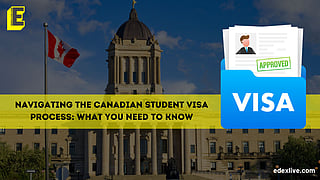
Canada continues to be a top choice for international students, offering world-class education, diverse cultural experiences, and strong post-graduation work opportunities.
However, recent changes to student visa policies have created uncertainty for many applicants. With Canada tightening eligibility criteria and increasing scrutiny on applications, securing a study permit now requires careful preparation. While these policy shifts may seem daunting, students who follow the right approach can still successfully obtain their visas.
Understanding key requirements, avoiding common pitfalls, and showcasing strong intent can significantly improve your chances.
Here are essential tips to help you navigate the process smoothly and maximise your chances of getting a Canadian student visa.
Canada’s immigration policies have seen recent updates, including changes in student permit issuance and additional financial requirements. Stay informed by regularly checking the official Immigration, Refugees and Citizenship Canada (IRCC) website to ensure your application meets the latest guidelines.
A key requirement for a Canadian study permit is proving you have sufficient funds to cover tuition, living expenses and return travel. With stricter financial scrutiny, ensure your proof of funds meets or exceeds the required amount. Bank statements, sponsorship letters or financial guarantees can help strengthen your application.
Only institutions on the government’s Designated Learning Institution (DLI) list are eligible for study permits. Choose a recognised university or college and obtain a firm acceptance letter before applying for your visa.
English proficiency is a major requirement for Canadian study permits. The Duolingo English Test (DET) is widely accepted by over 375 Canadian universities including University of Toronto, University of British Columbia, McGill University, University of Alberta, Simon Fraser University to name a few.
Unlike traditional tests like IELTS or TOEFL, DET is completely online, costs INR 6000 and delivers results within 48 hours, making it a convenient option for students worldwide. A strong DET score can enhance your study permit application by demonstrating your language proficiency effectively.
Your SOP is your chance to explain why you chose Canada, your study program and your future career plans. A compelling SOP should:
Clearly outline your academic background and aspirations.
Explain why you chose Canada over other countries.
Highlight how the programme aligns with your plans.
Assure visa officers of your intent to return home (if required).
A well-written SOP can convince visa officers of your genuine study intent and improve your chances of approval.
Any past visa refusals, overstays or discrepancies in your application can negatively impact your approval chances. Be honest in your application and provide all necessary supporting documents.
With increasing scrutiny, processing times may be longer. Apply early to avoid delays and ensure all forms, financial proofs and test scores are complete and accurate before submission. Double-check for missing information before submission.
Canada has recently expanded its Post-Graduation Work Permit (PGWP) eligibility, allowing more students to gain valuable Canadian work experience after graduation. This change allows graduates from a broader range of programs to gain valuable Canadian work experience, enhancing their career prospects.
While Canada’s visa policies are evolving, international students who prepare thoroughly and submit well-documented applications can still successfully secure a study permit.
Staying proactive, applying early and meeting all requirements will help you navigate the changing landscape of Canadian student visas with confidence.
